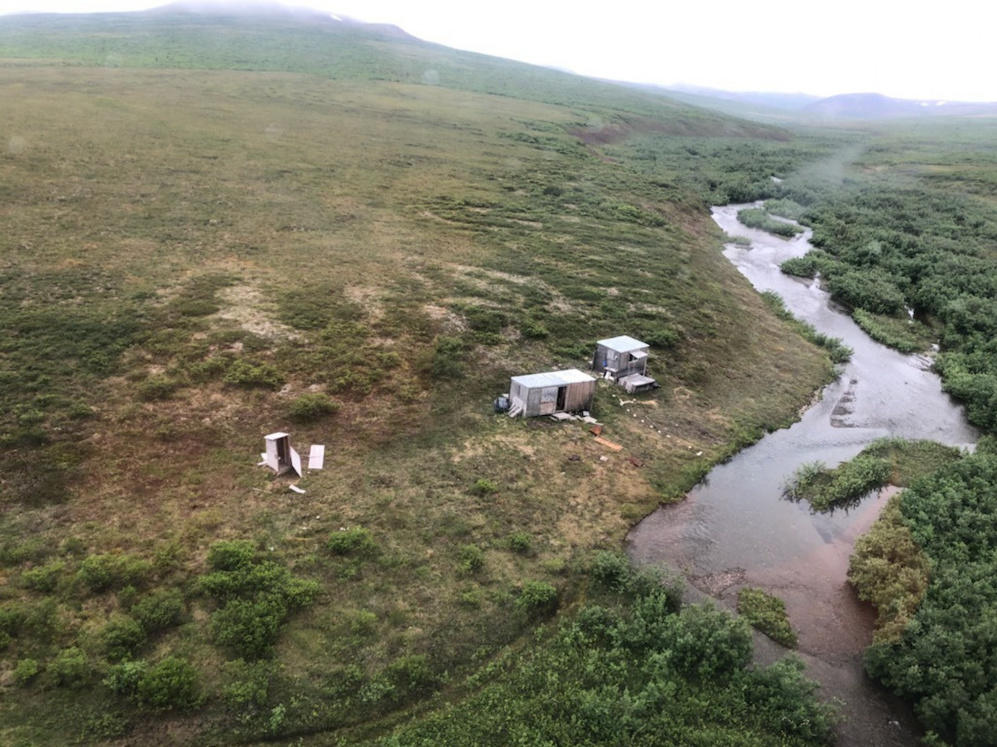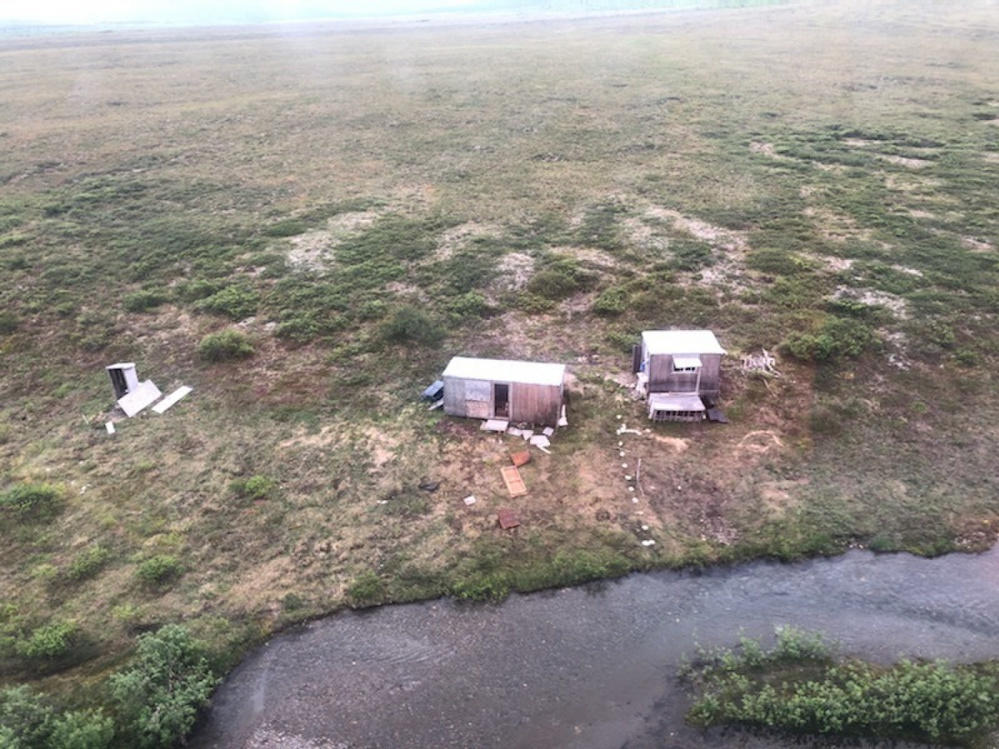Section Branding
Header Content
Repeatedly Confronted By A Bear, A Man Is Rescued After He Writes 'SOS' On A Shack
Primary Content
While flying between the Alaskan cities of Kotzebue and Nome, a Coast Guard helicopter crew spotted an SOS sign on top of a shack. Circling back over the remote mining camp, they found a man waving his hands in the air.
Friends had reported him missing after he hadn't returned to his Nome home. It turned out the man had been mauled by a bear days earlier, the crew realized when they finally got to him last week. That attack bruised his torso and injured his leg, according to the Coast Guard.
The man was taken to a Nome emergency room, the Coast Guard said in a statement Tuesday night.
"The man reported that the bear had returned to his camp and harassed him every night for a week straight," the Coast Guard said. The Coast Guard has not released details about his identity.
It's unclear what type of bear attacked the man, but both black and brown bears are common in the state. Alaska has an estimated 30,000 brown bears and 100,000 black bears, according to the Alaska Department of Fish and Game.
Ever wonder what you should do if when in bear country? This is what the Alaska wildlife agency recommends.
- Keep the garbage and food at your home secure so it doesn't attract bears. Or if you're going camping, maintain a clean campsite and store food out of their reach.
- Don't surprise a bear. Make noise, sing or talk loudly to let them know you're there. Stay alert and look for signs of bears.
- Never approach or crowd bears; give them space. If you approach their personal space, they'll feel threatened and become aggressive.
- During a bear encounter, stay calm and don't run. Alert the bear by facing it and talking calmly. Stand close to others in your group or wave your arms slowly above your head to look bigger.
- Try to back away slowly while keeping your eyes on it. But if the bear follows, stop.
- If the bear continues to focus on you, raise your voice, beat on pans, use noisemakers, throw rocks or sticks. Use a deterrent, such as bear spray, if you have one.
Dalia Faheid is an intern on NPR's News Desk.
Copyright 2021 NPR. To see more, visit https://www.npr.org.


